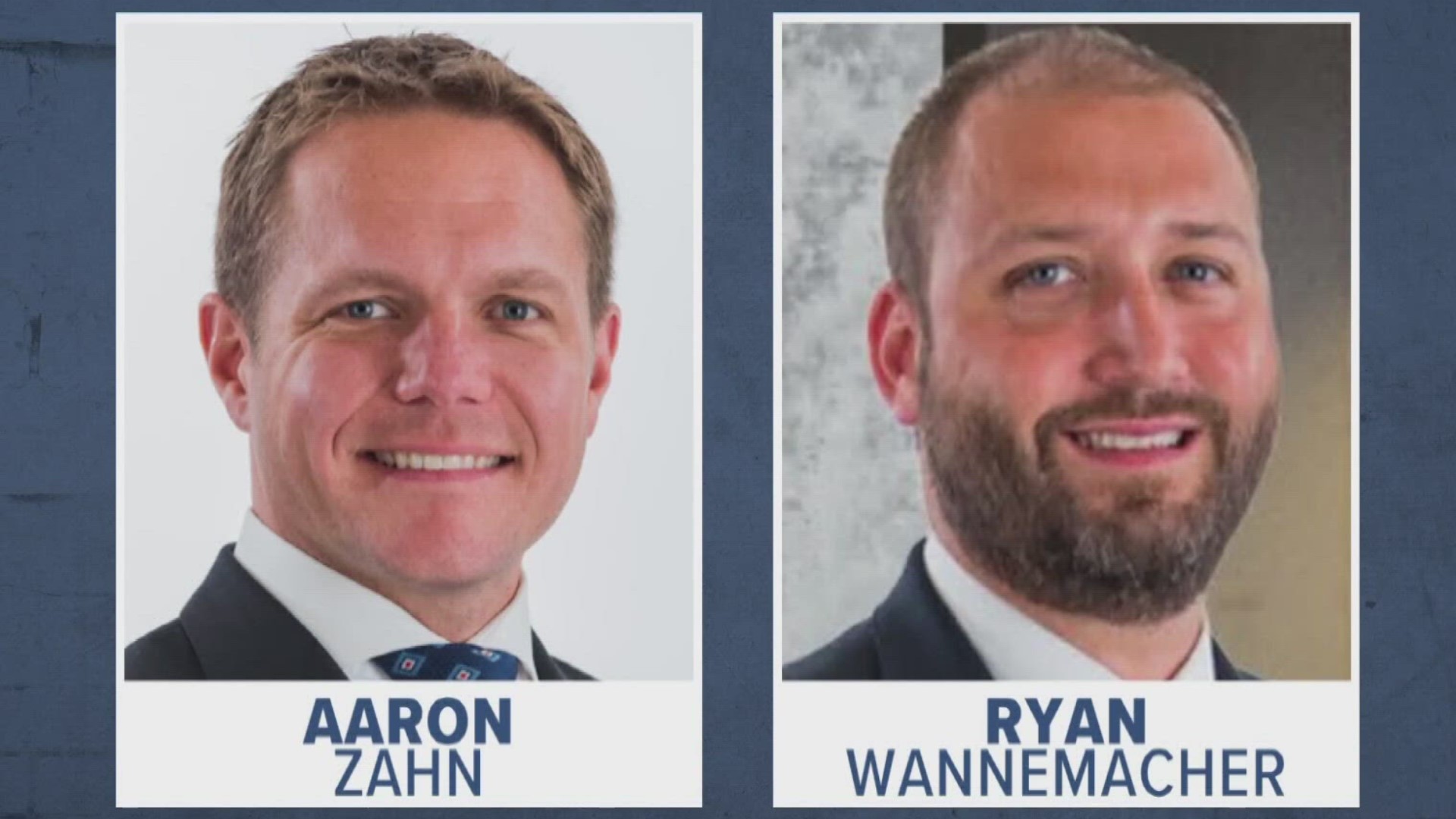JACKSONVILLE, Fla. — Tuesday was the fifteenth, and final, day of witness testimony in the trial of ex-JEA CEO Aaron Zahn and ex-JEA CFO Ryan Wannemacher, accused of plotting to skim millions off the back of a sale of the utility. The two are being tried together, but with separate juries, who will begin their deliberations after closing arguments Wednesday.
In 2019, while they were pushing to privatize and sell JEA, Zahn and Wannemacher introduced a bonus plan that would allow employees to purchase 'performance units,' akin to a private company offering a stock option. The performance units would cost $10 apiece.
Prosecutors say the two misled the board of directors, who approved the plan, by failing to disclose that the value of a performance unit would balloon if JEA sold, possibly up to values upwards of $11,000. (Six board members voted to approve the plan: Five testified they did not know how much money was at stake, and one was excused from testifying after pleading the fifth.) The two were ensnared by a report from the Jacksonville Office of the City Council Auditor, which used a formula provided by Wannemacher to determine that the possible payouts of the plan if the utility sold.
The report led to an investigation by the city and eventually, a federal indictment.
The city auditor's report was the subject of the last two days of testimony, while Zahn's defense tried to poke holes in the math and dispose of the document as faulty, and federal prosecutors used their rebuttal to rebuild the report's credibility.
Zahn's camp chose to call only one defense witness, CPA Ernest Dickson. His defense team gave their direct exam of Dickson Monday afternoon, and the prosecution cross-examined him Tuesday morning.
The testimony was largely complicated and riddled with jargon, but the questions at the heart are simple: Did the city auditors get it wrong? Did Zahn and Wannemacher really stand to gain that much money?
Dickson spent his time on the stand explaining different accounting standards, and explaining how he would personally have determined the value of the plan based on those accounting standards. He said the plan would never have passed JEA without being evaluated under these rules, leaving no room for argument; he repeatedly told the jury that there was no other way to look at the math.
READ MORE: What Dickson testified
Dickson mimicked the city auditor's calculations, which he qualified he believes are "flawed," "mis-states the PUP agreement," and "slants the perspective of what would actually occur," to come up with his own estimation of the value of the performance units in the event of a sale. He came up with a price of $1,050 each, nearly eleven times less than prosecutors say the units could have valued.
The prosecution brought their own witness to rebut his testimony: Jeff Rodda, who did the math on the city auditor's report.
He testified they did the math based solely off a formula provided by Wannemacher, which was not governed by accounting standards. This formula was part of the plan as approved by JEA's board.
Jurors were shown an email exchange between auditors and Wannemacher, who confirmed that they were properly understanding the formula.
The jury was again shown a table that says the units could have been worth up to $11,000, which Rodda testified was accurate.
He also refuted testimony by Dickson that the city auditors didn't understand how much money would have been funneled into the plan, walking the jury through the city auditor's valuation of a JEA sale.
Federal Prosecutor Tysen Duva returned to a piece of Dickson's testimony from Monday: How much he bills.
Dickson had testified he makes $750 an hour, something Duva also raised while questioning him, saying, “There are three parties here; Mr. Zahn, Mr. Wannemacher and the government. Two I think you will find disagree with you, and one is paying you.”
At the end of his testimony, Rodda was asked if he was paid to create this report, or to testify. He said no, he wasn't.
Duva then asked: Did he know what Dickson got paid? Rodda did not.
“We’ll leave it at that," Duva said. "No further questions, your honor.”
City Auditor Kim Taylor and Kyle Billy, who was the city auditor at the time of the report and has now retired, testified earlier in the trial. While defense attorneys questioned the integrity and arithmetic behind the report, both stood firmly behind it.
RELATED: Taylor & Billy's testimony
During nearly two hours of toe-to-toe with Raquel Jefferson, one of Zahn's attorneys, Rodda was the same, immovable from his original testimony.
Jefferson asked him if he based his math off of assumptions, but Rodda was prepared to cite his sources, explaining that the city auditor's report was based off past financial statements by JEA. He was also able to account for debt that both Dickson and Jefferson implied that the city auditors were leaving out.
Rodda repeatedly told Jefferson, "The math is the math." His conclusions came from nothing but "arithmetic," he said.
Closing arguments began Wednesday morning.

